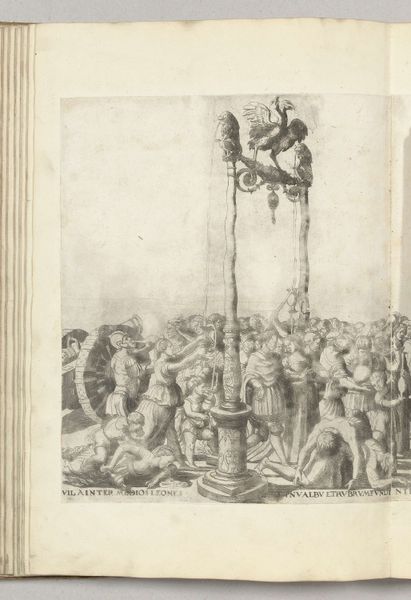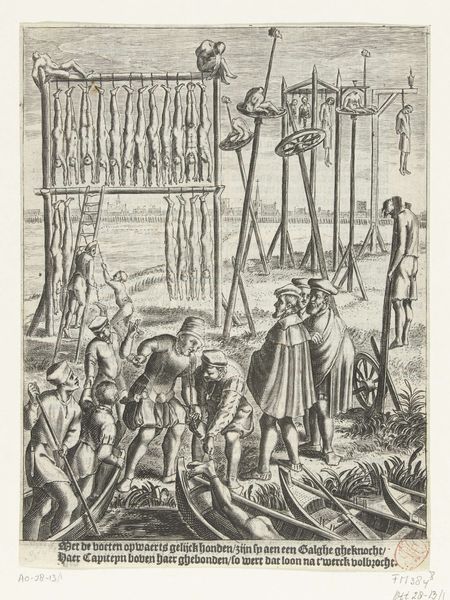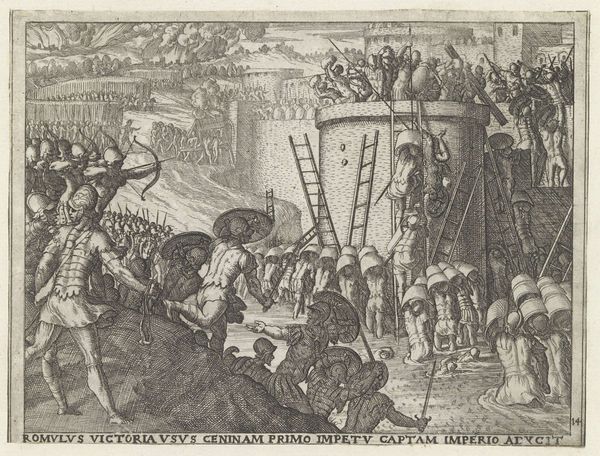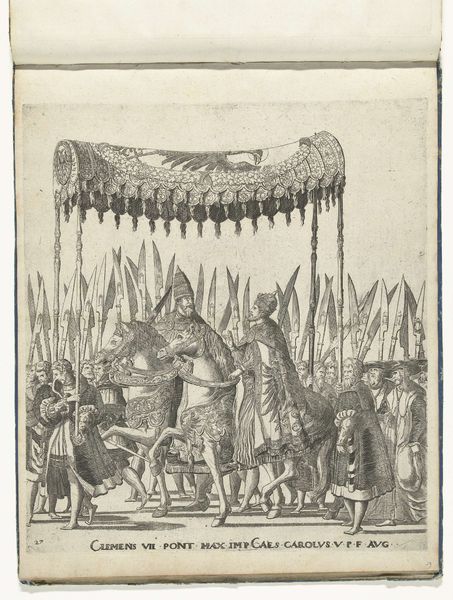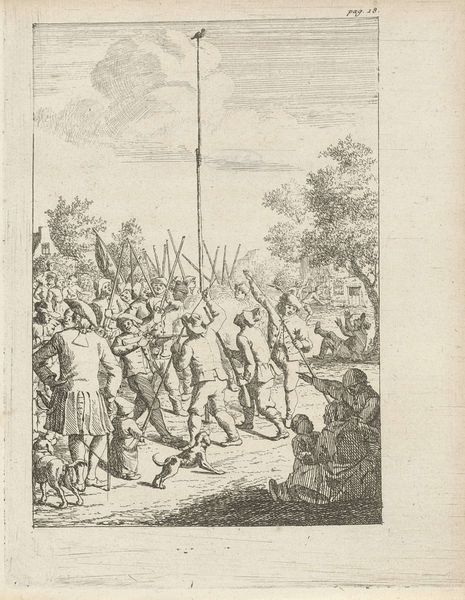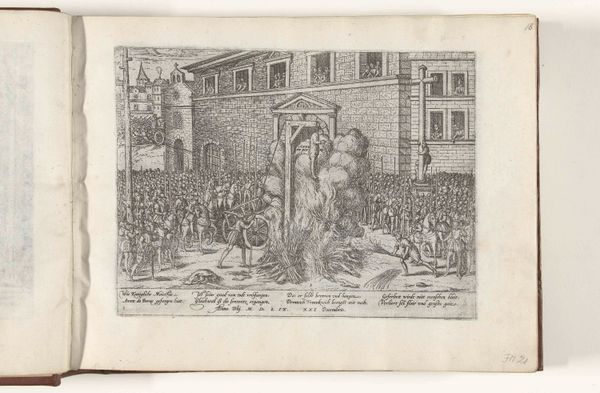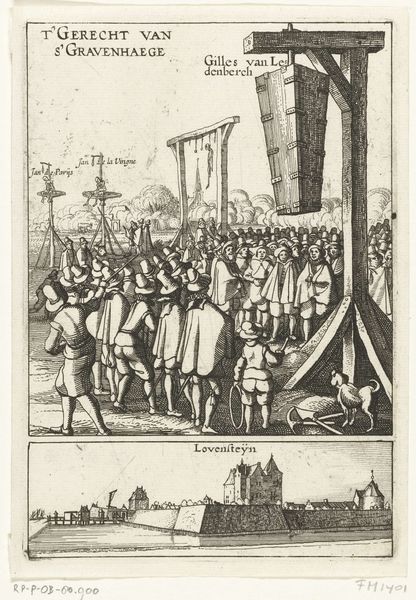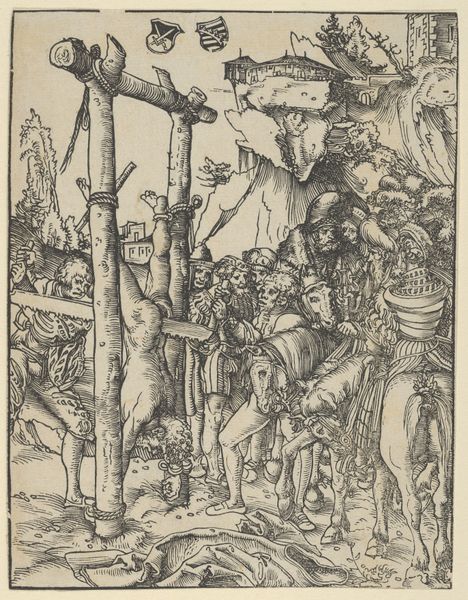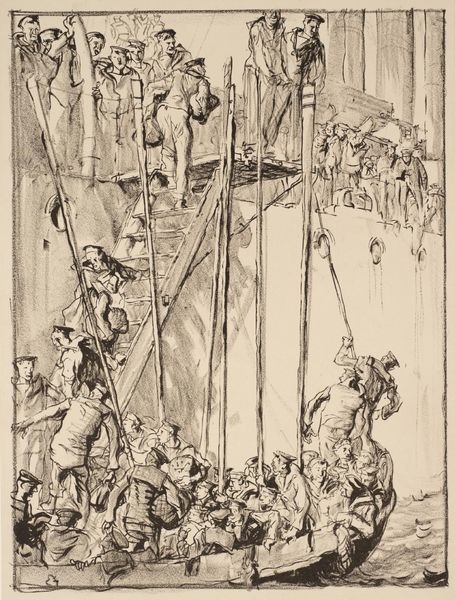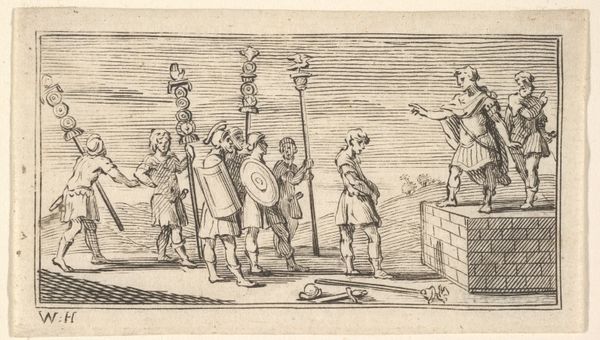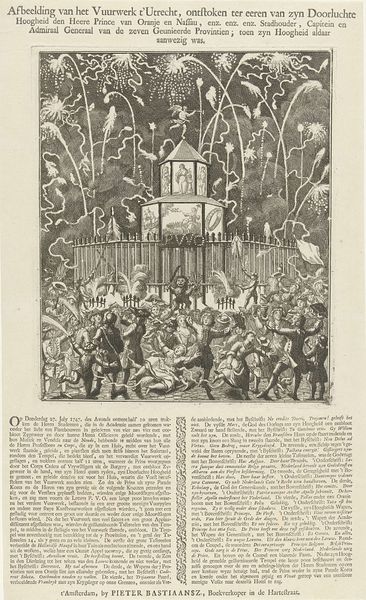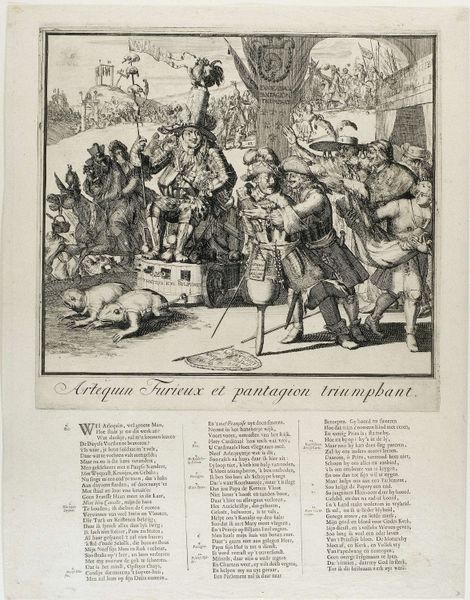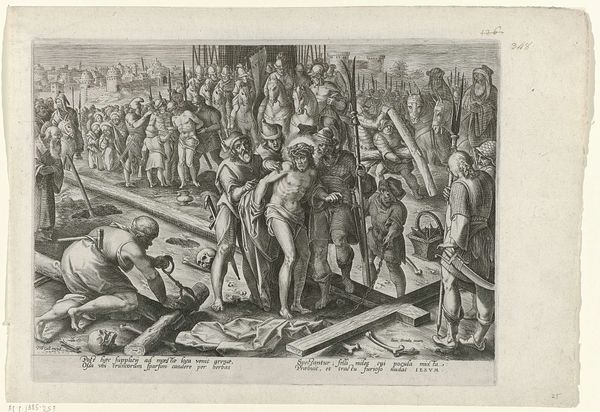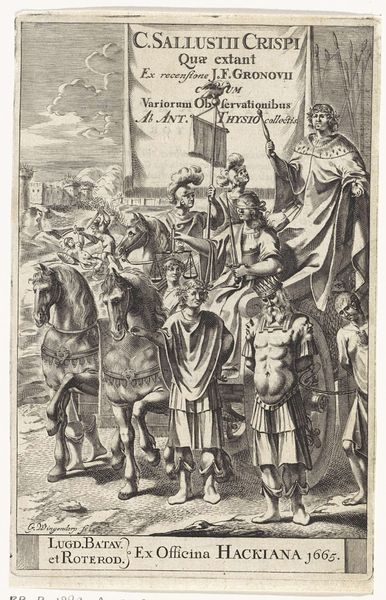
drawing, print, paper, ink
#
drawing
#
narrative-art
# print
#
pen sketch
#
mannerism
#
paper
#
ink
#
pen-ink sketch
#
history-painting
Dimensions: height 330 mm, width 300 mm
Copyright: Rijks Museum: Open Domain
Editor: This is Nicolaas Hogenberg's "Fountain with Wine and Drunkenness, plate 36," possibly created between 1530 and 1620 using ink on paper. There’s a real sense of chaos and disorder depicted, almost Bacchanalian, with people collapsing and clamoring around this elaborate fountain. How do you interpret this work? Curator: It's interesting to see it within the context of Mannerism, a period wrestling with social upheaval reflected through elongated figures, distorted perspectives, and theatrical compositions. Do you notice how the fountain acts as a visual and thematic anchor, even as it dispenses—quite literally—the cause of the chaos around it? Consider this fountain as not merely a source of pleasure but perhaps as a symbol of power and control being perverted. The act of public intoxication takes on political dimensions when considering that control. Editor: I see that now, the fountain being so ornate, acting as a representation of corrupt governance and society. What about the historical context surrounding depictions of inebriation? Curator: Inebriation and its representation had a long tradition of being used as critique. Visual representations were employed to reflect a decline of society and morals within. Are there are echoes here to anxieties around social control, maybe, specifically class tensions, playing out within the act of communal drinking? Editor: It makes you think, doesn’t it, about the potential subversiveness embedded within seemingly simple imagery. I initially overlooked all that. Thanks for the deeper insight! Curator: Precisely! Analyzing works like this opens a dialogue, pushing us to explore these art pieces beyond just aesthetic observations and, rather, exploring socio-political criticisms as a means for opening our awareness.
Comments
No comments
Be the first to comment and join the conversation on the ultimate creative platform.
